Affiliate Disclaimer
Some links in this article are affiliate links. We may earn a small commission if you make a purchase through these links, at no extra cost to you. We only recommend products we find useful to our readersHave you been experiencing stiff joints accompanied by pain in them? If it is something persistent and a condition that happened all of a sudden, chances are that Rheumatoid Arthritis could be the answer for the same.
Unlike the other types of arthritis, this is one of those that are dependent on your gene and chromosomal layout. It has got nothing to do with the lifestyle you are leading, although switching to a healthier lifestyle can keep the symptoms in check.
By the end of this article, you will have a fair clear notion about everything there is to know about rheumatoid arthritis symptoms to the treatment options you can opt for.
What is Rheumatoid Arthritis?
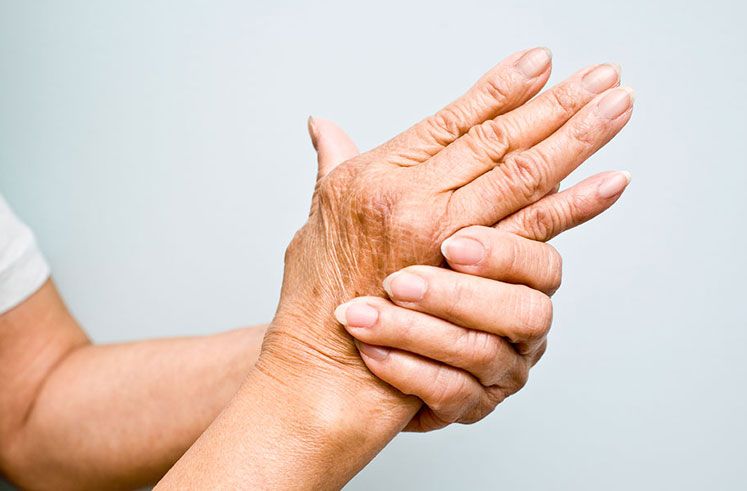
Rheumatoid arthritis (RA) is a common progressive and systemic autoimmune disorder which impacts the joints around in the body.
It is a condition which does occur when the immune system of the body itself mistakes the healthy tissues in the body as a threat and starts attacking them.
The constant battle does end up inflicting signs of inflammation inside the body, especially in the joints, thus causing pain and associated irritation altogether.
It predominantly does impact the hands and feet first but then goes on to affect the entire body as well.
If the statistics from the Rheumatoid Arthritis Support Network is to be believed, it is said that around 1% of the world’s total population suffers from this condition, 1.3 million people in the United States alone.
The condition not just affects the joints; it has the capability of affecting the lungs, eyes and the heart as well.
Type of Rheumatoid Arthritis

There are a few different types when it comes to Rheumatoid Arthritis. Given the fact that the condition is so serious, it is important that one knows and has an idea about the types that are prevalent in this.
The Three Types of Rheumatoid Arthritis that Affects People Include:
1. Seropositive RA
Patients suffering from this type have a positive rheumatoid factor which signifies the fact that they have antibodies in their bodies which ends up causing their immune system to attack their joints.
2. Seronegative RA
There are conditions when the patients do have a negative rheumatoid factor blood test result along with a negative anti-CCP blood test result but still showcase signs and the rheumatoid arthritis symptoms. People with this condition have been reported to later develop antibodies which change the diagnoses to seropositive RA.
3. Juvenile idiopathic arthritis
This is the form of rheumatoid arthritis which is witnessed in people younger than 17 years of age. The signs and symptoms with this condition is almost similar to what you normally witness with the normal string of rheumatoid arthritis paired with some noticeable inflammation in the eye as well as some issues with the physical development.
Causes of Rheumatoid Arthritis
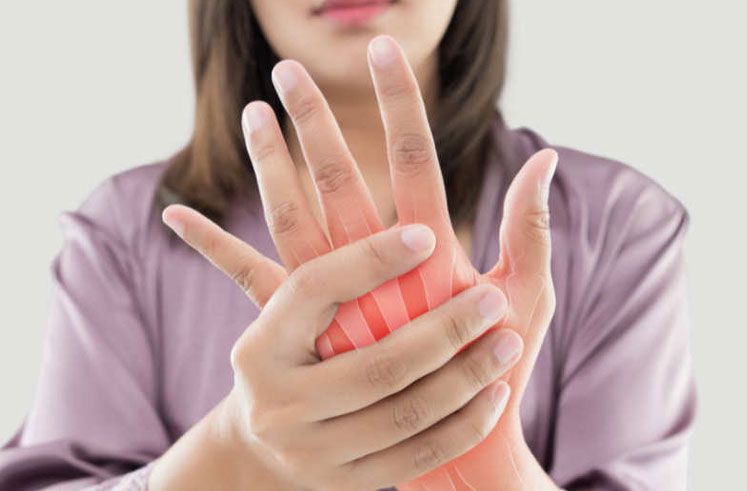
With all the ongoing researches and the evidences being dug out, it is not surprising at all that the particular reason behind this condition is still a haze.
There could be a number of risk factors associated with the same but it is still not clear as to what the primary cause behind the triggering of the autoimmune disease is.
Although the distinct scientific reason is still a haze, there could be a number of risk factors that could very well be contributing to this condition altogether.
Some of the Common Risk Factors Include:
- Women are at a higher risk of developing this disorder
- A prior family history associated with RA
- Exposure to bacterial environments especially because of periodontal diseases
- Been affected with viral infection
- Smoking
- Obesity
Signs and Symptoms of Rheumatoid Arthritis
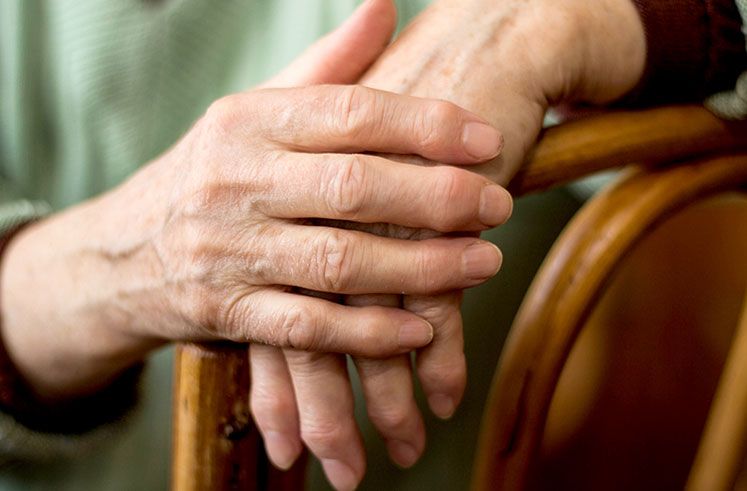
When it comes to the signs and symptoms associated with the condition of Rheumatoid Arthritis, it is quite similar to what you do experience with the other types as well which is why people often tend to get confused which type they are affected with.
Some of the Common Rheumatoid Arthritis Symptoms Include:
- Joint pain
- Stiffness in the joints paired with the lack of flexibility
- Loss of joint function
- Swelling and evident inflammation around the joints
The symptoms tend to get worse with time which is why it is very important and necessary to pay close heed to the same to avoid being stuck in a quagmire altogether.
How is Rheumatoid Arthritis Diagnosed?

When it comes down to the rheumatoid arthritis diagnosis, the process isn’t necessarily an easy and straightforward one.
Given the fact that the causes are still in a complete haze, it is often hard for the doctors to diagnose the condition right off the bat. There are a few steps and procedures involved which have a contributing factor to the process of diagnosis.
The doctor predominantly starts by questioning about the symptoms and the medical history to get a hang of what is going on and if it actually is something to do with rheumatoid arthritis or some underlying health condition.
Some of the common tests and processes involved in the diagnosis process include:
Blood Tests
There is no one blood test to detect the condition of RA which is why multiple blood tests are conducted to find the possibility of the condition.
Some of the blood tests that the doctor suggests getting done include:
- Erythrocyte sedimentation rate (ESR) – a high level of ESR has been associated with the possibility of RA
- C-reactive protein (CRP) indicates if there is some form of inflammation inside the body or not
- Rheumatoid factor
- Anti-Cyclic Citrullinated Peptide (Anti-CCP) Antibodies
Imaging
Apart from the blood tests, the doctors even suggest imaging process to diagnose the disorder. These kinds of methods are often suggested to judge the progression and severity of the condition.
Some of the common imaging methods for diagnosis include:
- X-rays
- MRI
- Ultrasound tests
What about the Rheumatoid Arthritis treatment?

Coming down to discussing about the treatment options, there are a few aspects that you do need to take care of.
Given the fact that the scientists have still not been able to find the exact cause behind the same, till now, there is no particular cure for this condition. Although, there are some amazing treatment options for rheumatoid arthritis which does help in managing the condition altogether.
There are several factors which can be used to decrease the inflammation altogether and that does help contribute to preventing further joint and organ damage.
Some of the Treatment Options Include:
- Natural remedies
- Changes in the diet
- Medications
- Exercises
Home Remedies for RA
Let us take a look at some of the effective home remedies that you can opt for the rheumatoid arthritis treatment.
1. Hot and Cold Compress

Hot and cold compress is predominantly an amazing way to relieve rheumatoid arthritis symptoms.
It is believed that more than the hot compress, it is the cold compress which has beneficial impacts in helping relieve the pain and stiffness.
Cold compress has been reported to help with the swelling as well as the inflammation. It is very important to be careful of how much you are applying it for. Don’t necessarily overdo it.
For the beneficial and maximum benefits, just apply it for 15 minutes at a time and that should get the job done.
Make sure to no do it frequently and maintain a good time frame in between them.
Hot compress, on the other hand, has been found to help with the pain and swelling by boosting the blood circulation around the area. Make sure that the warmth is bearable and not something that affects and burns your skin. That is the last thing you want.
2. Acupuncture

The usage and administration of acupuncture is not necessarily the most opted for the option but the same has been found to impose amazing benefits in the treatment process.
It is an age old Chinese tradition for pain management and reduction which is still in practice.
It has been found to have beneficial impacts in handling the chronic pain that many often tend to complain about because of RA.
The only thing you need to ensure is the fact that you consult someone professional who knows what they are doing.
3. Massage

Massage works amazingly in relieving the pain and the stiffness that the majority of the people suffering from Rheumatoid Arthritis complain about.
It is very important to talk to your doctor before you end up opting for any of them. This helps ensure that you keep the risks to a bare minimum and not end up facing any kind of the side effects altogether.
Look around for masseuse who has priorly worked with patients suffering from this condition. This helps ensure that you get the best of treatment for the condition.
4. Meditation

You will be surprised to know that meditation does act as a potent remedy for the condition of rheumatoid arthritis treatment for the better.
It is believed that the constant peace that it brings to the mind is what helps in helping people recover from the pain and even try and seek the overall positive prospect into the treatment without any sorts of additive issues altogether.
5. Progressive Muscle Relaxation

Given the fact that one of the most common rheumatoid arthritis symptoms is the stiffness and the inflammation around the joints, it goes without saying that relaxing the muscles is possibly one of the most common things that we fail to do.
For This Process, Follow The Steps Mentioned:
- Breathe in deeply and then tighten the muscles in your body and relax
- Go about doing one part of the body and then the other
- It is important to breathe in while you are contracting the muscles and then breathe out while you relax
Diet for RA Patients

You might not realize this but what you consume can be one of the best ways to manage the rheumatoid arthritis causes.
Altogether, consuming an anti-inflammatory diet is very important for the patients suffering from this condition and we are going to help you with some of the foods that should definitely be in your diet.
6. Coriander

Coriander or cilantro has beneficial impacts in handling the condition and symptoms associated with Rheumatoid arthritis.
In a conducted study (R) in 2014, it was found that the supplementation with coriander in patients suffering from rheumatoid arthritis did find effective results in managing the condition and also helped improve the induction of oxidative stress.
7. Turmeric
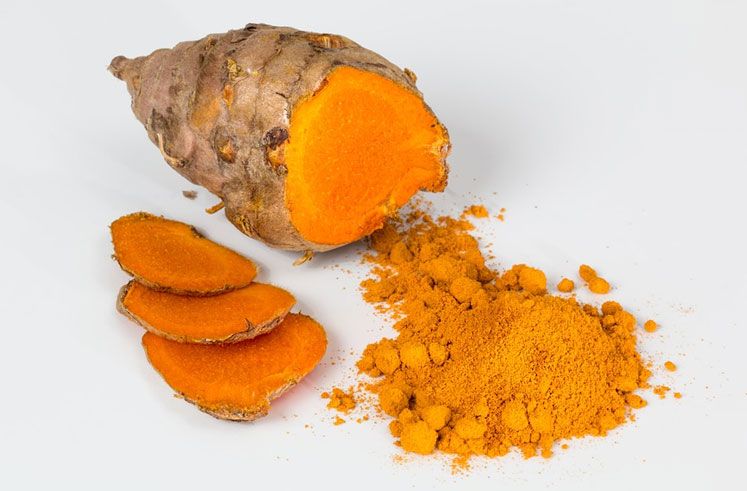
The usage of turmeric as a potent treatment option for rheumatoid arthritis has been in usage since long back in history.
The active compound in the turmeric, Curcumin, is what has beneficial impacts in handling the RA symptoms. It has beneficial anti-inflammatory (R) properties which fight off the inflammation and helps relieve the condition associated with the pain as well.
Either drink a glass of turmeric milk or you can add it to the daily cooking as a spice to enjoy its benefits.
8. Pineapple

The efficacy of pineapple in handling the condition of rheumatoid arthritis symptoms is something that is mainly because of the presence of bromelain in it.
The active compound, Bromelain, has been found to not just impose beneficial anti-inflammatory properties, it also helps in alleviating the pain that many patients often tend to complain about.
Experts suggest to either sticking to a supplement pill for the best of results on your health.
Even a conducted study (R) found that the impacts of bromelain could be beneficial to replace the non-steroidal anti-inflammatory drugs for the people who suffer from a degenerative disease and chronic pain.
9. Green Tea
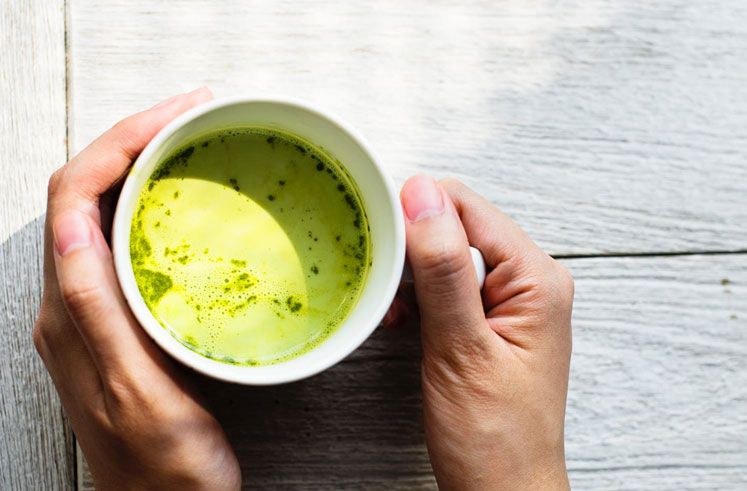
Green tea is yet another one of the beneficial diet inclusions that can impose several positive impacts on your health, especially if you are suffering from arthritis.
The presence of the beneficial antioxidant properties (R) of the green tea is what is believed to be an amazing inclusion to the overall prospect of helping relieve the pain and the inflammation.
All in all, it is a safe option for anyone and everyone to consume but if you have been consuming medications for blood thinning, this is the best option because it contains mild amount of Vitamin K which is not suitable for the same.
10. Fish oil

Fish oil supplements are yet another amazing option that you can opt for if you are on the lookout for beneficial changes to the diet.
These supplements do contain good amounts of omega-3 fatty acids which have been found to have beneficial impacts in handling the symptoms associated with the disorder. It helps bring down the inflammation and pain that many tend to offer suffers from.
Medications for Rheumatoid Arthritis

When it comes down to the medications for rheumatoid arthritis, there are a few that does help in handling the condition effectively.
Some of the effective drugs that do help in keeping the rheumatoid arthritis symptoms at bay include:
- Non-steroidal anti-inflammatory drugs
- Corticosteroids
- Acetaminophen
They do have their specific way to help alleviate the pain and the swelling that many tend to complain about.
Some of the effective ways in which these drugs help manage the symptoms associated with rheumatoid arthritis includes:
- Some of them end up blocking some of the immune response in the body which is associated with the better handling of the symptoms associated with RA
- Some even inhibit the Janus Kinase pathways which have been found to have important impacts on the induction of inflammation and damage to the joints.
Osteoarthritis Vs Rheumatoid Arthritis
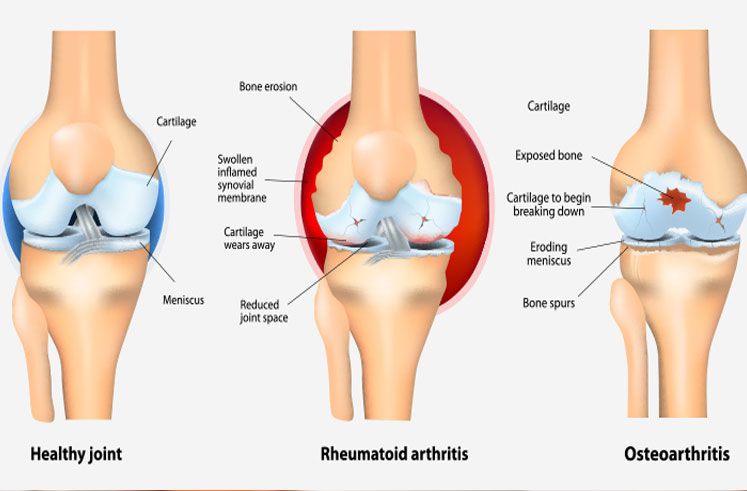
When it does come down to explaining the difference between osteoarthritis and rheumatoid arthritis, the primary factor behind the same lies in the causes and the initial impacts of the same.
While Osteoarthritis is a progressive condition that is caused because of the wearing off of the cartilage in between the bones, the same is not the case with RA.
In Rheumatoid arthritis, the condition is completely an autoimmune disease which makes the body treat its healthy tissues as a threat and thus ends up attacking them.
How to Prevent Rheumatoid Arthritis?

You might not realize this but given the fact that there is no possible and assertive cause till found for RA, it is hard to suggest preventive measures.
Although, there are lifestyle related risk factors that one can avoid for the best of results.
Some of the preventive measures for RA include:
- Avoid or try and quit smoking altogether
- Try and maintain a healthy weight altogether
Rheumatoid arthritis can impact your quality of life. This is the primary reason why it is beneficial to look for ways to improve your lifestyle so as to ensure that the same doesn’t end up impacting your life for the worse. We hope the information shared helped clarify all your queries about the disease.
In this Article




















